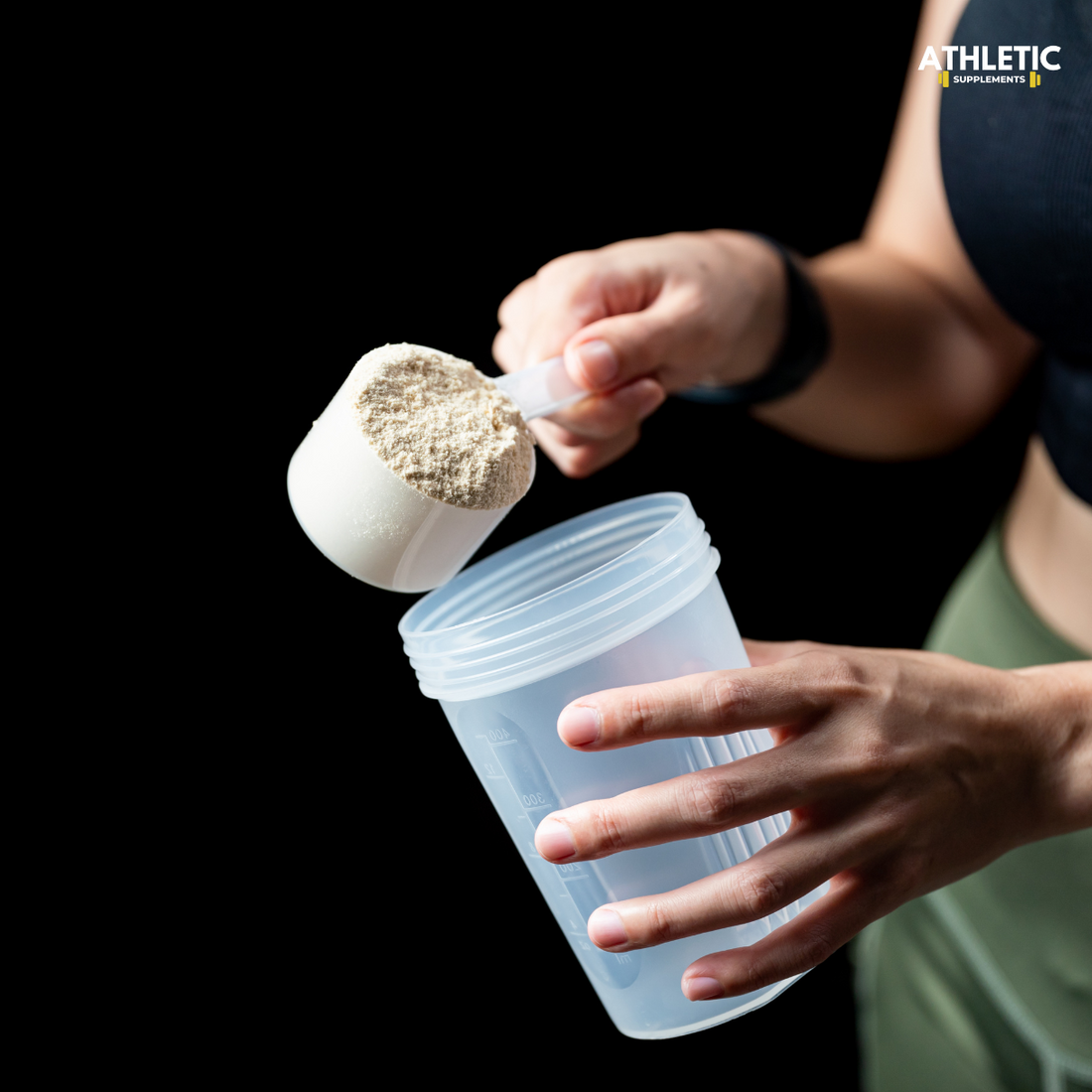The question of whether to mix your protein powder with milk or water goes beyond just taste and impacts nutrient absorption, digestion and performance. Let’s dive deeper into the pros and cons!4
Should you mix your protein shake with milk or water?
Nutrient Profile and Intake:
Milk:
Milk provides an excellent source of protein and adds calcium, vitamin D, and occasionally fat and carbohydrates to your shake. Combining whey protein powder with milk increases protein content and provides additional nutrients essential for bone and muscle building. The advantage here = more protein!
Water:
Using water reduces the calorie and carbohydrate intake of your shake. Water is a lower calorie option that is particularly suitable for people who want to control their calorie intake or reduce carbohydrates.
Taste and Texture:
Milk:
Protein shakes mixed with milk have a creamier taste and richer texture. The flavor can vary depending on the milk used (whole milk, low-fat milk, almond milk, etc.), each bringing its own flavors.
Water:
Water-based protein shakes are lighter and thinner. The taste may be less intense, but refreshing and easier to digest. Here it mainly depends on your own taste. A protein shake mixed with water is not as creamy as one made with milk.
Digestibility and individual preferences:
Milk:
For some people, the lactose content in milk can cause digestive distress. People with lactose intolerance or milk allergies should consider alternative milks or water.
Water:
Protein shakes mixed with water are easier to digest for many people and are less likely to cause digestive problems. They are an optimal choice for people with digestive problems or intolerance to dairy products.
Now what is better?
The question of whether it is healthier to consume protein powder with milk or water has no clear answer as it depends largely on individual needs, goals and preferences.
-
Fitness Goals: For someone looking to gain muscle and gain additional nutrients, choosing milk can be beneficial.
-
Calorie and Carb Management: If you want to limit your calorie intake or reduce carbohydrates, water might be a better choice.
-
Tolerability: People with lactose intolerance or milk allergies should use water-based options.
It is important to emphasize that there is no “one right answer.” It depends on individual needs, fitness goals and tolerance. Some people also combine both to achieve balanced nutritional intake and flavor variety.
Conclusion:
Choosing between milk and water when mixing your protein powder depends on your individual goals, preferences and tolerance. Milk provides additional nutrients and improves taste, while water is a lower calorie, more easily digestible alternative. A big advantage of the milk protein shake is clearly the amount of protein, as the additional milk means there is more total protein in your shake.
Experiment to find what works best for you. You may also want to try different types of milk or even other liquids like almond milk, oat milk, or coconut water. It is important that you reach your protein intake and feel good about it.
Our tip: Drink your protein shake with almond milk - you have the perfect sweet spot in terms of consistency and creaminess!

